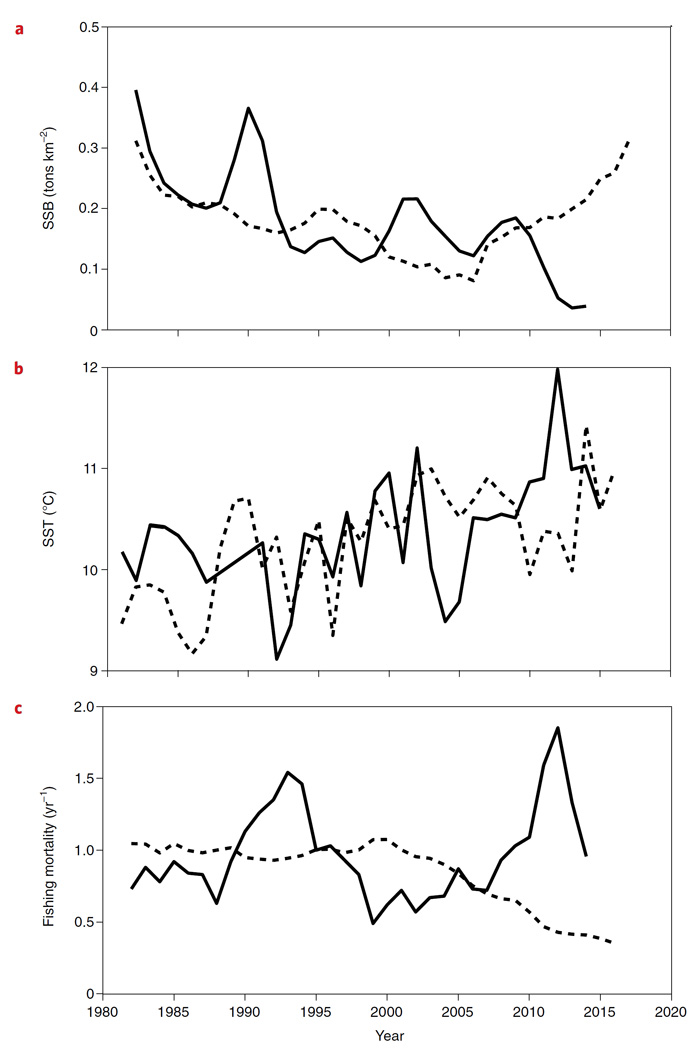| Tweet | Follow @co2science |
Paper Reviewed
Brander, K.M. 2018. Climate change not to blame for cod population decline. Nature Sustainability 1: 262-264.
Writing in the journal Nature Sustainability, Brander (2018) cautions that "the scientific community must guard against overemphasizing the role of climate" as a driver in ecological change, specifically focusing his Comment on a case study where rising temperatures associated with climate change have been incorrectly blamed as the key drivers of cod stock collapse in the Gulf of Maine over the past four decades.
Prefacing his rebuke, Brander cites a 2015 paper published in Science (Pershing et al., 2015), which has been widely cited in the news that attributes the collapse of the Gulf of Maine cod fish stock to climate change. However, utilizing these data on this and another cod stock from the North Sea, he was able to demonstrate that overfishing, not global warming, was likely the major cause of the Gulf of Maine cod decline.
As shown in the figure below, temperatures have been very similar in the two stock regions for cod, whereas adult fishing mortality has remained high in the Gulf of Maine, but has declined in the North Sea since the year 2000. Consequently, as a result of the recent fishing mortality reduction in the North Sea, cod in this region have begun to recover to sustainable levels, as evidenced by their increasing spawning stock biomass. Such data, in the words of the author, "implicate fishing, not increasing temperatures, as the major cause of observed [cod population] changes," and Brander adds that "reducing fishing to a sustainable level should therefore be the priority for fisheries management policy if stocks are to recover."
In concluding his brief comment, Brander advises that "the evidence and mechanisms for climate effects should be well established and credible, before they influence management advice and become a dominant part of the public narrative about why a stock is declining." Indeed, this sound advice should be applied to all other claims of a CO2-induced climate impact, such as the erroneous claims that continue to be made that global warming was responsible for Hurricane Florence, which recently ravaged the eastern USA. Such false claims have no scientific backing in real-world data; and they continue to blight and retard efforts and work that could otherwise be spent solving real problems.

Figure 1. Cod stocks and fishing mortality in the Gulf of Maine (solid lines) and North Sea (dashed lines). Panel a: spawning stock biomass (SSB). Panel b: mean annual sea surface temperatures (SST). Panel c: annual adult fishing mortality. Note that fishing mortalities for maximum sustainable yield are 0.18 for the Gulf of Maine and 0.31 for the North Sea. Source: Brander (2018).
Reference
Pershing, A.J., Alexander, M.A., Hernandez, C.M., Kerr, L.A., Le Bris, A., Mills, K.E., Nye, J.A., Record, N.R., Scannell, H.A., Scott, J.D., Sherwood, G.D. and Thomas, A.C. 2015. Slow adaptation in the face of rapid warming leads to collapse of the Gulf of Maine cod fishery. Science 350: 809-812.




